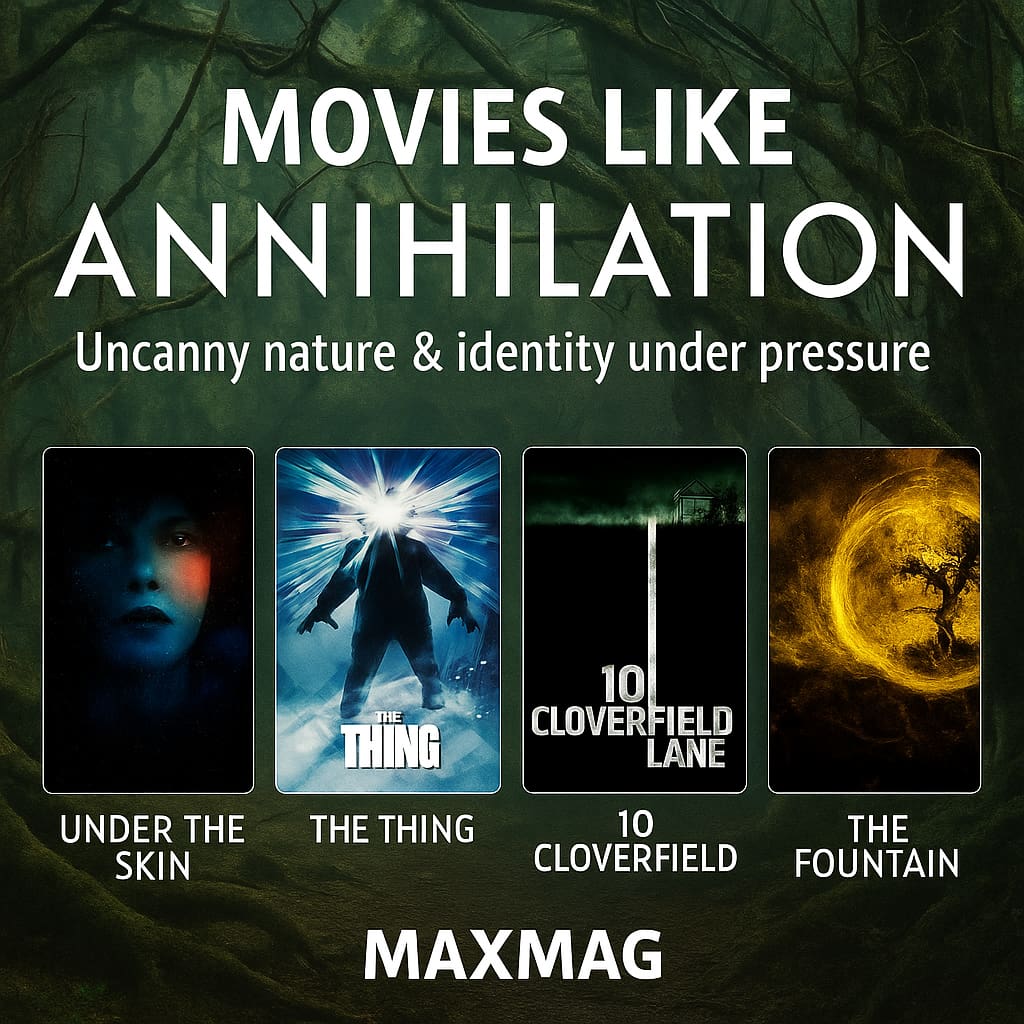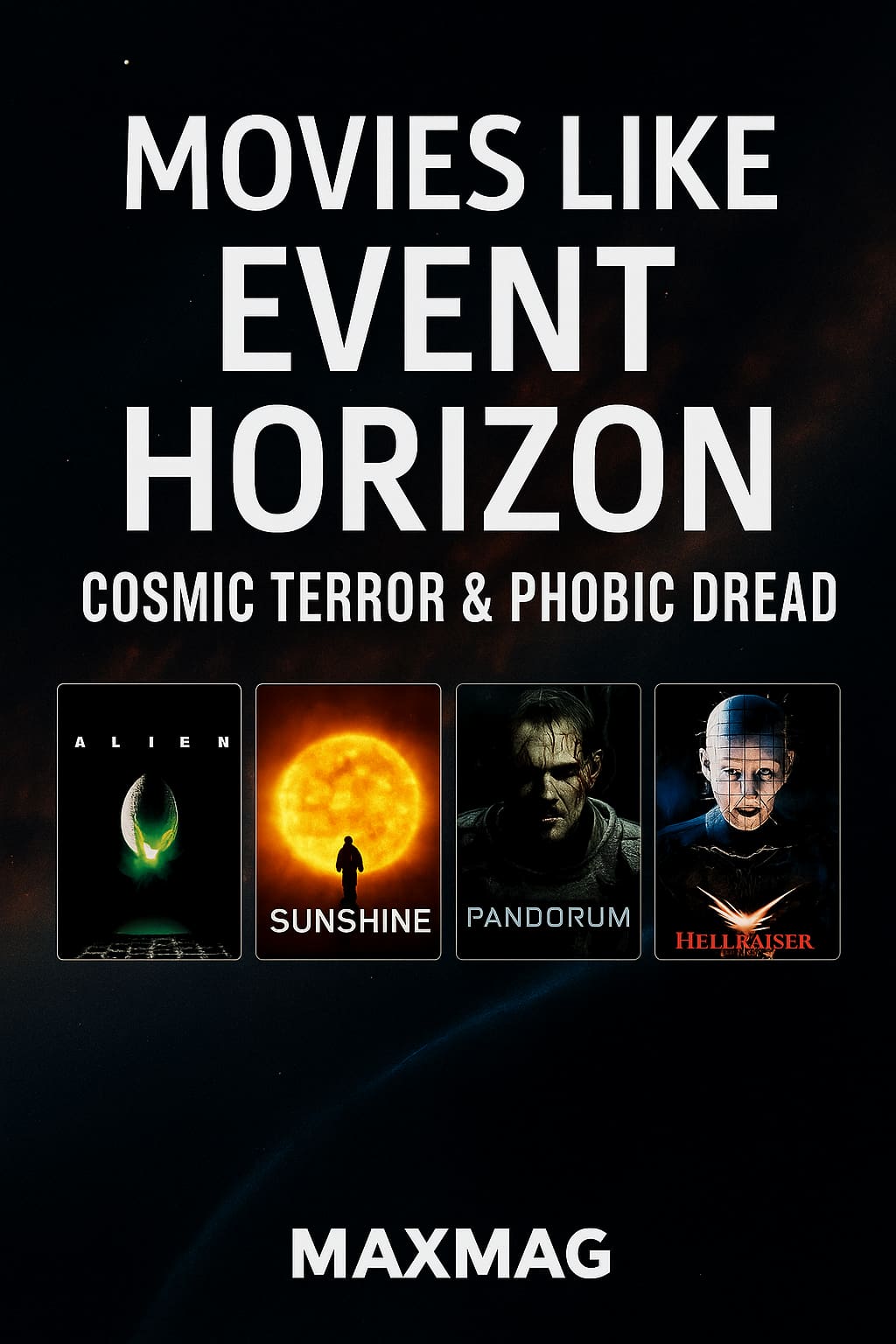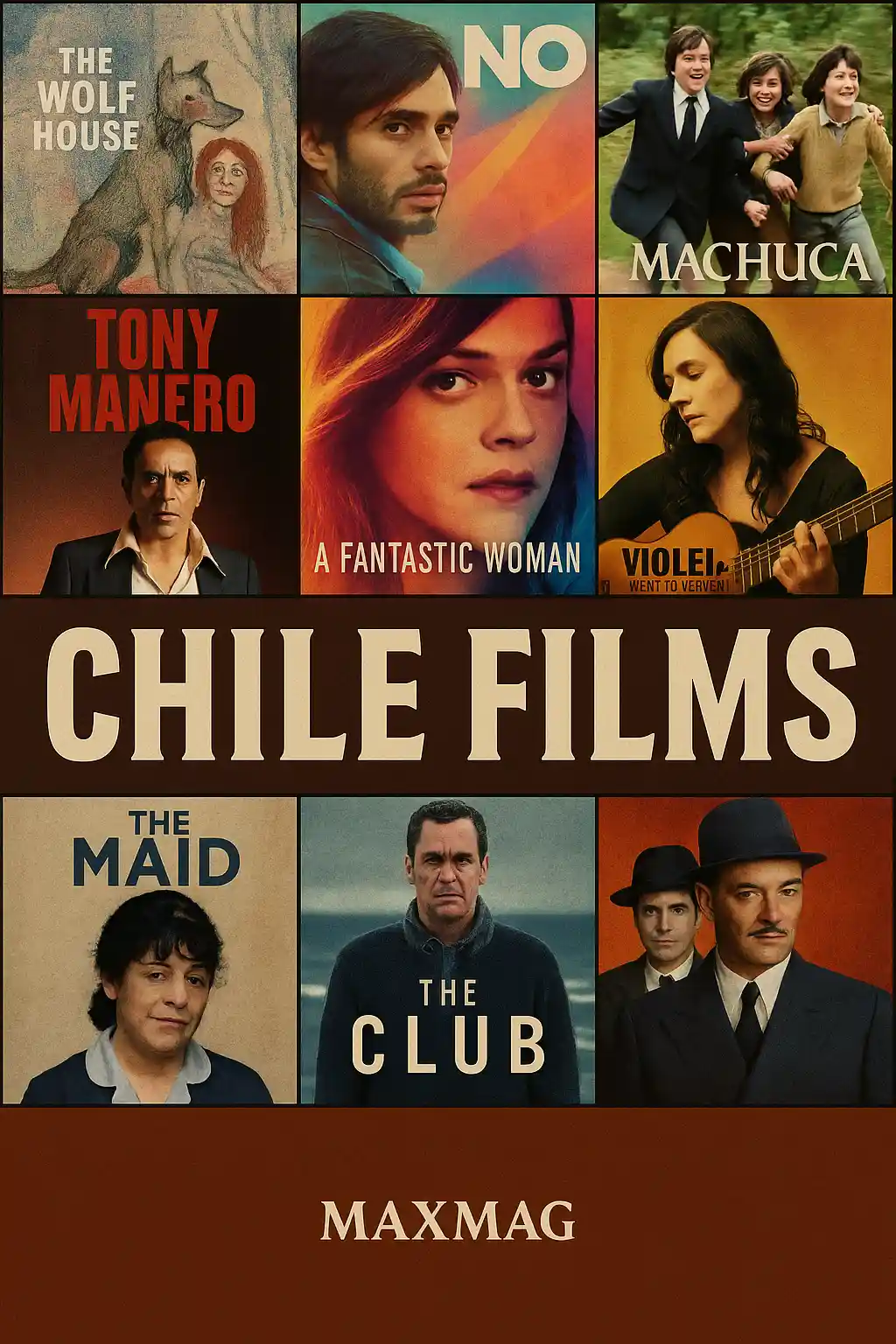
In the rugged landscapes of South America, a nation’s soul breathes through its cinema. Chile films carry a weight of history, the sting of political upheaval, and the warmth of human connection. Like the proud storytelling traditions of Scotland, these films blend sweeping natural vistas with intimate tales of love, resistance, and survival. From the snow-kissed Andes to the bustling streets of Santiago, Chile’s filmmakers have forged a distinct voice—unyielding, poetic, and unforgettable.
What makes Chile films so captivating is their unflinching honesty. They peel back the layers of society, revealing characters caught between personal dreams and the currents of history. Whether confronting the shadows of dictatorship, celebrating the resilience of everyday people, or pushing artistic boundaries with bold experimentation, Chilean cinema has left an indelible mark on world film culture. Below is our carefully curated list of the 25 highest-rated Chile films, each with an IMDb score above 6.5, presented with the drama, lyricism, and depth worthy of their place in the canon.
#25 – Post Mortem (Post Mortem) (2010)
-
Spanish Title: Post Mortem
-
Year: 2010
-
Runtime: 98 minutes
-
Starring: Alfredo Castro, Antonia Zegers
-
Director: Pablo Larraín
-
Genre: Drama / Political History
-
IMDb Rating: 6.7
Set during the days surrounding Chile’s 1973 coup d’état, Post Mortem stares into the abyss of a nation’s collapse through the eyes of a quiet morgue employee. The film’s stark, muted palette mirrors the moral greyness of a society losing its bearings. Like the best Chile films, it refuses to provide easy answers, instead allowing the weight of history to settle on the viewer like a winter fog over the Highlands. Alfredo Castro delivers a haunting performance—his stillness, much like a lone figure on a windswept moor, speaks louder than words. Pablo Larraín’s deliberate pacing draws you into the oppressive atmosphere until you can almost feel the air grow heavy. In its restraint lies its power, and in its silences lies a scream.
#24 – Coronation (Coronación) (2000)
-
Spanish Title: Coronación
-
Year: 2000
-
Runtime: 138 minutes
-
Starring: María Cánepa, Julio Jung, Adela Secall
-
Director: Silvio Caiozzi
-
Genre: Drama
-
IMDb Rating: 7.0
Coronación captures the decay of an aristocratic world with the same melancholy grace one finds in Scottish tales of fading clans. This jewel among Chile films follows an aging woman and her nephew as they navigate a house—and a social order—crumbling under the weight of time. Silvio Caiozzi’s direction is patient and textured, allowing us to feel the dust of the grand old mansion, to hear the echo of steps in its empty corridors. The characters’ lives unravel like a tapestry left too long in the damp, each thread pulling loose until only truth remains. At once intimate and epic, it is a masterclass in storytelling restraint and visual poetry.
#23 – My Tender Matador (Tengo miedo torero) (2020)
-
Spanish Title: Tengo miedo torero
-
Year: 2020
-
Runtime: 125 minutes
-
Starring: Alfredo Castro, Leonardo Ortizgris
-
Director: Rodrigo Sepúlveda
-
Genre: Romantic Drama / Political
-
IMDb Rating: 6.8
Set in the shadow of Pinochet’s dictatorship, My Tender Matador is a love story as fragile as lace and as defiant as a Highland rebel’s march. This standout in modern Chile films follows a trans woman whose life becomes entwined with an underground revolutionary. Alfredo Castro embodies vulnerability and dignity in equal measure, crafting a character who lingers in the mind long after the credits roll. The cinematography glows like a candle against the dark political backdrop, reminding us that tenderness can survive even in times of brutality. Each scene unfolds like a whispered confession, heavy with longing and the ache of impossible love.
#22 – Neruda (Neruda) (2016)
-
Spanish Title: Neruda
-
Year: 2016
-
Runtime: 107 minutes
-
Starring: Gael García Bernal, Luis Gnecco
-
Director: Pablo Larraín
-
Genre: Biographical Drama
-
IMDb Rating: 6.9
Pablo Neruda, poet and politician, becomes the quarry in Pablo Larraín’s cat-and-mouse meditation on art and resistance. Neruda is unlike most biopics—it is playful, elusive, and draped in the romantic fatalism familiar to Scottish ballads. As a Chile films entry, it dares to mythologise while keeping one foot planted in political reality. Luis Gnecco embodies Neruda’s charisma and contradictions, while Gael García Bernal’s inspector brings a dry wit to the pursuit. The film revels in its own artifice, suggesting that truth and legend are forever entwined. It is cinema as a literary game, a waltz between hunter and hunted.
#21 – The Club (El Club) (2015)
-
Spanish Title: El Club
-
Year: 2015
-
Runtime: 97 minutes
-
Starring: Alfredo Castro, Roberto Farías, Antonia Zegers
-
Director: Pablo Larraín
-
Genre: Drama / Psychological
-
IMDb Rating: 6.9
In a secluded seaside house, four disgraced priests live in exile, their lives a quiet purgatory until an unexpected visitor disrupts the uneasy peace. The Club burns with a slow, smouldering intensity—the kind of moral fire that Scottish dramas wield so well. As one of the most searing Chile films, it confronts guilt, hypocrisy, and the institution’s struggle to contain its sins. The muted colours and low horizons give the impression of a world closing in, suffocating under the weight of secrets. This is cinema that challenges, unsettles, and refuses to be forgotten
#20 – Machuca (Machuca) (2004)
-
Spanish Title: Machuca
-
Year: 2004
-
Runtime: 121 minutes
-
Starring: Matías Quer, Ariel Mateluna, Manuela Martelli
-
Director: Andrés Wood
-
Genre: Coming-of-Age Drama / Political History
-
IMDb Rating: 7.7
Machuca unfolds against the politically charged backdrop of early 1970s Santiago, telling the story of two boys from opposite ends of the social spectrum brought together in a private school experiment. This poignant entry among Chile films is both a tender portrait of friendship and a devastating commentary on a country’s fracture. The film’s power lies in its contrast—the innocence of childhood conversations set against the roar of protests in the streets. Andrés Wood’s direction imbues the simplest gestures with symbolic weight, making the personal inseparable from the political. Like a Highland tragedy, Machuca builds towards an inevitable parting, leaving the audience with the ache of what could have been.
#19 – The Wolf House (La casa lobo) (2018)
-
Spanish Title: La casa lobo
-
Year: 2018
-
Runtime: 75 minutes
-
Starring: Amalia Kassai, Rainer Krause
-
Directors: Cristóbal León, Joaquín Cociña
-
Genre: Animation / Horror / Experimental
-
IMDb Rating: 7.6
Few Chile films are as nightmarishly inventive as The Wolf House. Told entirely through stop-motion animation, it transforms a house into a living, breathing organism, constantly shifting and distorting like a fever dream. Beneath its surreal visuals lies a chilling allegory inspired by the real-life horrors of Colonia Dignidad. The experience is hypnotic—claustrophobic rooms fold in on themselves, faces melt into walls, and whispered voices seep through the plaster. Like a folktale told on a stormy night in the Highlands, it is both entrancing and unsettling. This is art that dares to be difficult, rewarding those willing to step into its labyrinth.
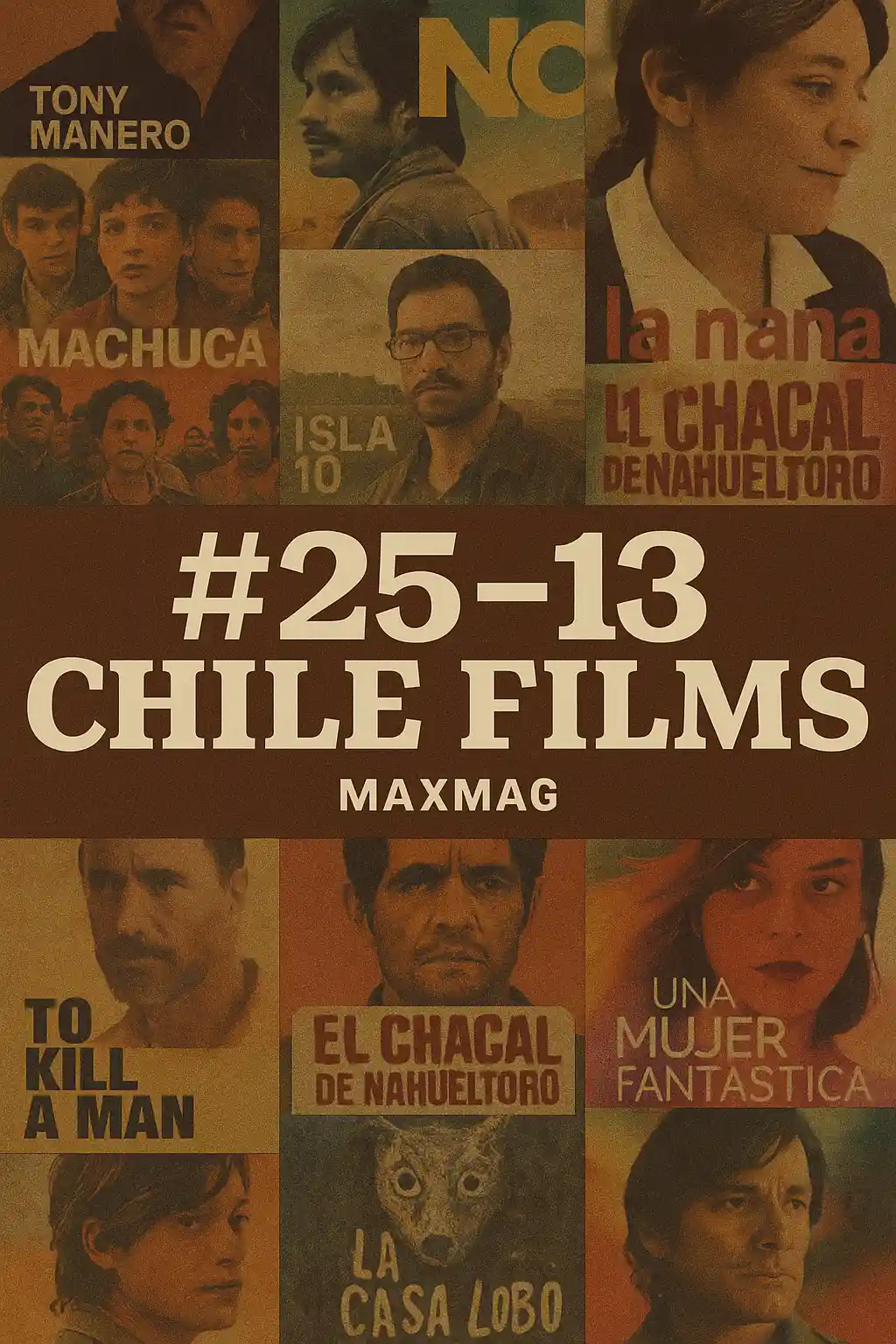
#18 – Julio Begins in July (Julio comienza en julio) (1979)
-
Spanish Title: Julio comienza en julio
-
Year: 1979
-
Runtime: 150 minutes
-
Starring: José Manuel Salcedo, Patricia Guzmán, Shenda Román
-
Director: Silvio Caiozzi
-
Genre: Drama / Period Piece
-
IMDb Rating: 7.5
Often hailed as one of the greatest Chile films of the 20th century, Julio Begins in July is a sweeping exploration of privilege, tradition, and the passage to adulthood. Set in the early 1900s, it follows a wealthy landowner determined to initiate his son into manhood during the heat of summer. Silvio Caiozzi crafts each frame with painterly care, evoking the languid pace of rural life while letting tensions simmer beneath the surface. The vast estates and creaking haciendas feel as storied as ancient castles in the Scottish Highlands, heavy with unspoken rules and generational weight. It is a film that lingers, rich with cultural memory.
#17 – A Fantastic Woman (Una mujer fantástica) (2017)
-
Spanish Title: Una mujer fantástica
-
Year: 2017
-
Runtime: 104 minutes
-
Starring: Daniela Vega, Francisco Reyes
-
Director: Sebastián Lelio
-
Genre: Drama / LGBTQ+
-
IMDb Rating: 7.2
Winner of the Academy Award for Best Foreign Language Film, A Fantastic Woman is an unforgettable testament to resilience and dignity. This crown jewel of modern Chile films follows Marina, a transgender woman fighting for her right to mourn after the death of her partner. Daniela Vega’s performance is magnetic—quiet strength layered over deep vulnerability, like a lone piper standing against the wind. Lelio’s lens captures moments of surreal beauty amidst hostility, elevating the personal struggle into something universal. It is both a love story and a rallying cry, confronting prejudice with grace and unflinching honesty.
#16 – No (No) (2012)
-
Spanish Title: No
-
Year: 2012
-
Runtime: 118 minutes
-
Starring: Gael García Bernal, Alfredo Castro
-
Director: Pablo Larraín
-
Genre: Historical Drama / Political Thriller
-
IMDb Rating: 7.4
No captures a pivotal moment in Chilean history—the 1988 plebiscite to end Pinochet’s dictatorship—through the eyes of a young advertising executive. Shot in period-authentic video, the film immerses the viewer in the era’s atmosphere, making the stakes feel immediate and personal. Among Chile films, it stands out for its clever use of media strategy as a weapon of change. Gael García Bernal delivers a performance brimming with subtle wit and determination, balancing cynicism with a spark of hope. Like the best Scottish historical dramas, No understands that revolutions are won not only on the battlefield, but also in the hearts and minds of the people.
#15 – Violeta Went to Heaven (Violeta se fue a los cielos) (2011)
-
Spanish Title: Violeta se fue a los cielos
-
Year: 2011
-
Runtime: 110 minutes
-
Starring: Francisca Gavilán, Cristian Quevedo
-
Director: Andrés Wood
-
Genre: Biographical Drama / Music
-
IMDb Rating: 7.2
Violeta Went to Heaven is a lyrical portrait of Chile’s beloved folk singer, Violeta Parra. Eschewing linear storytelling, it drifts through her memories like verses in a song—some tender, some heartbreaking. This standout in Chile films captures the soul of a woman whose music carried the joys and sorrows of her people. Francisca Gavilán embodies Violeta with raw intensity, singing not just with her voice but with every fibre of her being. The film’s shifting structure mirrors the improvisational nature of folk music itself, creating a work as rich and unpredictable as life.
#14 – The Maid (La nana) (2009)
-
Spanish Title: La nana
-
Year: 2009
-
Runtime: 95 minutes
-
Starring: Catalina Saavedra, Claudia Celedón
-
Director: Sebastián Silva
-
Genre: Comedy-Drama / Social Realism
-
IMDb Rating: 7.3
The Maid offers a sharply observed character study of Raquel, a long-serving domestic worker whose sense of security is threatened when her employers hire extra help. One of the most celebrated Chile films of the last two decades, it balances humour with unspoken sadness. Catalina Saavedra’s performance is nuanced, capturing the quiet pride, simmering resentment, and unexpected tenderness of her character. Sebastián Silva keeps the focus intimate, allowing the family home to feel both like a sanctuary and a cage. It’s a story about change, fear, and the possibility of renewal.
#13 – The Jackal of Nahueltoro (El chacal de Nahueltoro) (1969)
-
Spanish Title: El chacal de Nahueltoro
-
Year: 1969
-
Runtime: 95 minutes
-
Starring: Nelson Villagra, Shenda Román
-
Director: Miguel Littín
-
Genre: Crime Drama / Biography
-
IMDb Rating: 7.8
Regarded as one of the greatest Chile films ever made, The Jackal of Nahueltoro recounts the true story of an illiterate farmhand who commits a brutal crime, is reformed in prison, and ultimately faces execution. Miguel Littín directs with a steady hand, refusing to sensationalise the violence, instead focusing on the social and systemic failures that shaped the man. Nelson Villagra delivers a deeply human performance, transforming the “jackal” into a tragic figure caught in the machinery of justice. Like the darkest Scottish ballads, it’s a meditation on fate, morality, and the possibility of redemption.
#12 – To Kill a Man (Matar a un hombre) (2014)
-
Spanish Title: Matar a un hombre
-
Year: 2014
-
Runtime: 82 minutes
-
Starring: Daniel Candia, Alejandra Yáñez, Ariel Mateluna
-
Director: Alejandro Fernández Almendras
-
Genre: Drama / Crime / Thriller
-
IMDb Rating: 6.7
To Kill a Man is a slow-burning moral drama that forces its audience to wrestle with questions of justice and vengeance. It tells of a humble family man pushed to the edge by a violent neighbour and the indifference of the authorities. Unlike most thrillers, this entry in Chile films strips away the glamour of revenge, replacing it with the heavy weight of consequence. The muted cinematography and sparse dialogue recall the quiet, snow-laden tension of a Highland winter night. Alejandro Fernández Almendras crafts a tale where the silence after an act is louder than the act itself, leaving the viewer unsettled long after.
#11 – The Settlers (Los colonos) (2023)
-
Spanish Title: Los colonos
-
Year: 2023
-
Runtime: 97 minutes
-
Starring: Alfredo Castro, Mariano Llinás, Camilo Arancibia
-
Director: Felipe Gálvez Haberle
-
Genre: Historical Drama / Western
-
IMDb Rating: 7.0
One of the most striking modern Chile films, The Settlers is a revisionist western that confronts the violent colonisation of Patagonia in the early 20th century. Through sweeping landscapes and tense silences, it examines complicity, greed, and the brutal erasure of indigenous life. The cinematography, stark and expansive, mirrors the Highlands in winter—beautiful yet merciless. Each shot lingers, giving the audience no escape from the moral rot beneath the grand vistas. Felipe Gálvez Haberle’s debut is both an epic and an indictment, as sharp as a claymore and as unflinching as history itself.
#10 – Too Late to Die Young (Tarde para morir joven) (2018)
-
Spanish Title: Tarde para morir joven
-
Year: 2018
-
Runtime: 110 minutes
-
Starring: Demian Hernández, Antar Machado, Magdalena Tótoro
-
Director: Dominga Sotomayor Castillo
-
Genre: Drama / Coming-of-Age
-
IMDb Rating: 6.7
Set in the haze of a rural commune during Chile’s transition to democracy, Too Late to Die Young drifts through a summer of adolescent longing and unspoken change. As with the finest Chile films, the political undertones ripple quietly beneath the surface, shaping the fates of the young without their full understanding. Dominga Sotomayor Castillo captures fleeting moments with the delicacy of a folk ballad—sunlit afternoons, first loves, and the quiet acceptance that nothing lasts forever. The film’s rhythm feels like a slow walk through misty glens, each step soft yet laden with meaning.
#9 – Gloria (Gloria) (2013)
-
Spanish Title: Gloria
-
Year: 2013
-
Runtime: 110 minutes
-
Starring: Paulina García, Sergio Hernández
-
Director: Sebastián Lelio
-
Genre: Drama / Romance
-
IMDb Rating: 6.9
In Gloria, we meet a free-spirited woman in her late fifties, navigating life’s disappointments with stubborn optimism. This standout among Chile films is a rare and joyous celebration of female independence, yet it refuses to shy away from vulnerability. Paulina García gives a career-defining performance, embodying Gloria’s humour, resilience, and quiet loneliness. Sebastián Lelio crafts each scene with affection, allowing us to see the beauty in a disco ball’s reflection, or the courage in dancing alone. Like a Highland heroine standing tall against the wind, Gloria’s spirit refuses to be broken.
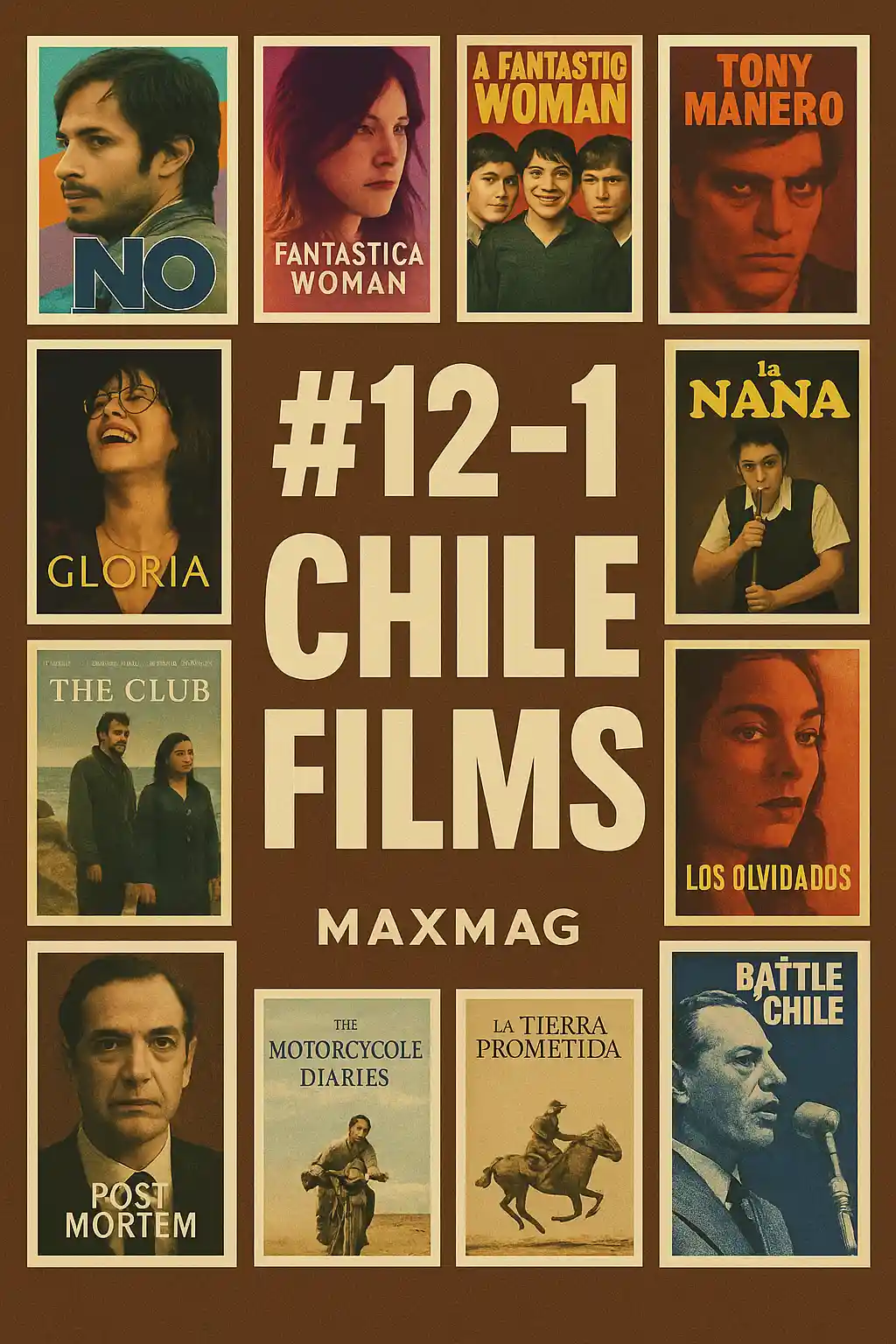
#8 – Chile ‘76 (1976) (2022)
-
Spanish Title: 1976
-
Year: 2022
-
Runtime: 95 minutes
-
Starring: Aline Küppenheim, Nicolás Sepúlveda, Hugo Medina
-
Director: Manuela Martelli
-
Genre: Drama / Thriller
-
IMDb Rating: 6.7
Chile ‘76 is a quiet thriller steeped in paranoia, set during the height of Pinochet’s regime. It follows a wealthy housewife drawn into the dangerous task of sheltering a political dissident. Among Chile films, it stands out for its atmosphere—sunlight falling across shuttered rooms, the sea pounding just beyond the walls, the constant hum of fear. Manuela Martelli’s directorial debut is meticulous in its pacing, building tension through small, precise gestures. It’s a story of risk taken in silence, a rebellion played out in the smallest acts, like the whispered defiance of a Scottish croft under enemy watch.
#7 – Tony Manero (Tony Manero) (2008)
-
Spanish Title: Tony Manero
-
Year: 2008
-
Runtime: 98 minutes
-
Starring: Alfredo Castro, Paola Lattus
-
Director: Pablo Larraín
-
Genre: Drama / Psychological
-
IMDb Rating: 6.7
Darkly satirical and unnerving, Tony Manero follows a middle-aged man obsessed with the Saturday Night Fever character during Chile’s dictatorship. One of the boldest Chile films, it examines the corrosive effects of political repression through a protagonist whose moral compass has completely eroded. Alfredo Castro is hypnotic in the lead role, balancing desperation with a chilling emptiness. Pablo Larraín wraps this character study in a grim visual palette, evoking the moral decay beneath the surface of both the man and the era. It’s a film that leaves you disturbed, questioning whether obsession is ever truly harmless.
#6 – Dawson Island 10 (Isla 10) (2009)
-
Spanish Title: Isla 10
-
Year: 2009
-
Runtime: 117 minutes
-
Starring: Benjamín Vicuña, Cristián de la Fuente
-
Director: Miguel Littín
-
Genre: Historical Drama / Biography
-
IMDb Rating: 6.8
Based on true events, Dawson Island 10 recounts the imprisonment of political detainees on a remote island in the aftermath of the 1973 coup. This harrowing chapter in Chile films is rendered with both stark realism and poetic reflection. Miguel Littín captures the desolation of the island—windswept, barren, yet heavy with stories of survival. The performances bring humanity to men reduced to numbers, showing courage in the face of isolation and cruelty. It’s as much about the endurance of hope as it is about the endurance of the body.
#5 – The Battle of Chile (La batalla de Chile) (1975–1979)
-
Spanish Title: La batalla de Chile
-
Year: 1975–1979
-
Runtime: Varies (documentary trilogy)
-
Director: Patricio Guzmán
-
Genre: Documentary / Political History
-
IMDb Rating: 8.2
Patricio Guzmán’s monumental documentary trilogy is one of the most important works in Chile films, chronicling the events leading to Pinochet’s coup. Filmed with courage on the streets, it captures history as it unfolds—protests, debates, and the final days of a fragile democracy. The camera moves like a witness, unflinching in the face of violence and uncertainty. Its scope and depth rival the grand historical epics of any nation, yet its intimacy keeps the focus on ordinary people. It remains a vital record of a country’s turning point.
#4 – Nostalgia for the Light (Nostalgia de la luz) (2010)
-
Spanish Title: Nostalgia de la luz
-
Year: 2010
-
Runtime: 90 minutes
-
Director: Patricio Guzmán
-
Genre: Documentary / Essay Film
-
IMDb Rating: 7.6
In the Atacama Desert, astronomers search the skies while families search the sands for the remains of loved ones lost to the dictatorship. Nostalgia for the Light is a poetic fusion of science, memory, and grief, and one of the most profound Chile films ever made. Patricio Guzmán draws parallels between the infinite cosmos and the unending search for truth, crafting a meditation that is both cosmic and deeply human. The film’s imagery—vast skies over barren earth—feels like the Scottish Highlands turned to desert, eternal and unyielding.
#3 – Three Sad Tigers (Tres tristes tigres) (1968)
-
Spanish Title: Tres tristes tigres
-
Year: 1968
-
Runtime: 105 minutes
-
Starring: Nelson Villagra, Shenda Román
-
Director: Raúl Ruiz
-
Genre: Drama / Experimental
-
IMDb Rating: 7.3
Raúl Ruiz’s early masterpiece, Three Sad Tigers, meanders through the nightlife and undercurrents of Santiago, capturing the fractured mood of a city on the cusp of change. As with the most daring Chile films, it rejects conventional narrative, embracing ambiguity and mood. Dialogue flows like a drunken conversation in a smoky bar—sometimes sharp, sometimes absurd, always revealing. Ruiz’s vision feels timeless, like a storyteller in a Highland pub weaving a tale that refuses to resolve neatly.
#2 – The Dance of Reality (La danza de la realidad) (2013)
-
Spanish Title: La danza de la realidad
-
Year: 2013
-
Runtime: 133 minutes
-
Starring: Brontis Jodorowsky, Pamela Flores
-
Director: Alejandro Jodorowsky
-
Genre: Fantasy / Autobiographical
-
IMDb Rating: 7.5
Part autobiography, part surreal fantasia, The Dance of Reality is a cinematic odyssey through memory, trauma, and imagination. This luminous entry in Chile films could only come from Alejandro Jodorowsky, blending political history with magical realism. Every frame bursts with colour and symbolism, like a tapestry woven from dreams and scars. It’s both deeply personal and universally resonant, a journey that reminds us cinema can be as boundless as the mind itself.
#1 – My Imaginary Country (Mi país imaginario) (2022)
-
Spanish Title: Mi país imaginario
-
Year: 2022
-
Runtime: 83 minutes
-
Director: Patricio Guzmán
-
Genre: Documentary / Political
-
IMDb Rating: 7.4
Patricio Guzmán returns with a vibrant, urgent chronicle of Chile’s recent protests and political awakening. My Imaginary Country captures the pulse of a nation demanding change, blending street-level immediacy with reflective narration. Among the most vital contemporary Chile films, it feels like both a rallying cry and a love letter to the spirit of the people. Guzmán’s lens finds beauty in the collective struggle—faces lit by protest flames, voices rising in unison. It is the perfect bookend to this list: a reminder that Chile’s cinematic story is far from over.
Conclusion: The Lasting Impact of Chile Films on World Cinema
From the sun-bleached deserts of the north to the rain-swept fjords of the south, Chile films carry the lifeblood of a nation’s past, present, and imagined futures. They chronicle the bruises left by dictatorship, the pride of cultural heritage, and the quiet persistence of those who dare to dream in the face of adversity. Whether through raw political documentaries, tender love stories, or wildly imaginative flights of surrealism, these works embody a voice that refuses to be silenced.
What makes Chile films so enduring is their ability to fuse the personal with the universal. A story about a single family becomes a parable for a country’s history. A small act of rebellion resonates like a folk song sung across generations. Chile’s filmmakers do not shy away from discomfort—they confront it, shape it, and transform it into images that stay with the audience long after the credits fade.
To explore more of Chile’s cinematic riches, you can visit trusted national institutions like Cinechile for in-depth archives, or Fundación Centro Cultural Palacio La Moneda for curated film events and historical retrospectives. These platforms preserve and promote the diversity and artistry of Chile’s screen heritage, ensuring that the world continues to discover and celebrate its stories.
In the end, Chile films are not just entertainment—they are windows into the country’s soul, stitched together with equal parts pain, beauty, and hope. They invite us, wherever we stand in the world, to witness, to feel, and to remember.
Frequently Asked Questions about Chile Films
Q1: What defines Chile films?
Q2: Which Chile films have won major international awards?
Q3: Are Chile films mainly political?
Q4: Where can I watch Chile films online?
Q5: Who are the most acclaimed Chilean directors?


